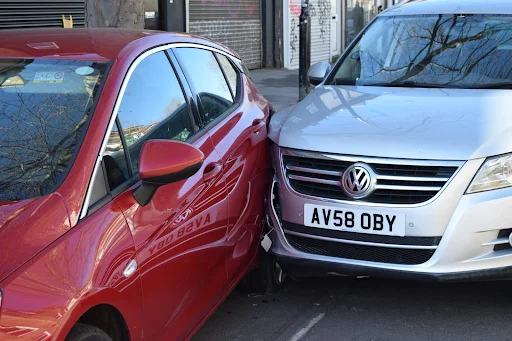Car-sharing services like Uber and Lyft have rapidly gained popularity, changing how people commute. With the convenience of booking a ride at a moment’s notice, these services have transformed urban transport and altered our interactions with car travel. The convenience of car sharing comes with an inherent risk: the possibility of being involved in a road accident. Understanding the implications of an accident during a car-sharing trip can improve your preparedness and awareness, as well as help you navigate any ensuing complications.
The Potential for Accidents
Rideshare drivers typically carry passengers in their personal vehicles, enhancing the chance of an accident since these drivers may not be as experienced as professional cab drivers. Compounded with the unpredictable nature of the road, erratic driver behavior, and distracted pedestrians or cyclists, accidents can and do happen. According to the National Highway Traffic Safety Administration, approximately 38,000 people die in motor vehicle accidents annually in the United States, highlighting the risks that every driver and passenger face. When engaged in a rideshare trip, it’s crucial to grasp the potential scenarios that may unfold if an accident transpires.
What to Do Immediately After an Accident
If a road accident occurs during a car-sharing trip, the immediate response is critical. First, ensure everyone involved is safe and call 911 for medical assistance if necessary. Next, exchange information with other parties involved in the accident, including names, contact information, and insurance details, to facilitate claims. Document the accident scene by taking photographs, as this evidence will be vital in supporting your case. Your rideshare company may have specific protocols to follow, so it’s important to notify them of the situation promptly. Knowing the right steps to take after an accident can significantly affect the handling of any claims, especially when confusion and stress can make the process overwhelming.
Understanding Liability in Rideshare Accidents
In most car accidents, liability is often a question that merits careful consideration. Various factors come into play, including whether the driver was on duty for the rideshare app at the time of the accident, whether the passenger was in the vehicle, and whether any additional vehicles or parties were involved. If a driver is active in the rideshare app, they are often covered under the rideshare company’s insurance policy.
Specific coverage limitations exist. If a rideshare driver was off duty or not utilizing the app at the time of the accident, personal insurance may become the primary coverage to address damages. Consulting with attorneys is advisable, as these Lyft injury lawyers suggest. They can help determine liability and ensure that you receive the compensation you may be entitled to.
Insurance Coverage During Rideshare Trips
Both drivers and passengers enjoy certain protections through rideshare companies’ insurance policies. While actively driving a passenger, drivers are typically covered for liability insurance, which can include bodily injury and property damage coverage.
Conversely, passengers are shielded from potential liability based on the rideshare company’s policies, allowing them to seek compensation for damages or medical expenses incurred during an accident. Understanding the specifics of the rideshare insurance coverage helps ensure that any injuries or damages resulting from an accident are appropriately addressed.
The Aftermath of an Accident: Medical Considerations
Injuries sustained in rideshare accidents can range from minor to severe, requiring different degrees of medical intervention. It’s crucial to monitor for delayed symptoms resulting from the accident, such as whiplash or concussions, as these can surface days or weeks after the event. Seeking medical attention promptly ensures that you receive the necessary treatment and provides critical documentation for any potential claims. Keeping all medical records, bills, and accident reports organized will aid in the claims process and substantiate any compensation requested for your injuries and losses.
The Growing Popularity of Car Sharing Services
Car-sharing services present a flexible and cost-effective alternative to traditional vehicle ownership. According to a report from Statista, the global ridesharing market size is projected to reach approximately 175 billion USD by the end of 2025, an indication of the services’ growing demand. As cities become denser and parking spaces more limited, many individuals opt for ridesharing for their daily commutes, weekend outings, or trips to social events.
This change in transportation is becoming increasingly versatile, serving a broad audience ranging from young professionals to occasional travelers. As more people turn towards rideshare apps, the likelihood of accidents occurring during these trips increases.
Accidents during car-sharing trips can be unsettling experiences, leading to confusion and stress. Understanding the steps to take, potential liabilities, and legal options can help individuals navigate these challenges effectively. In the end, being informed equips you to better handle unforeseen circumstances, ensuring that you protect your interests and those of others involved.







